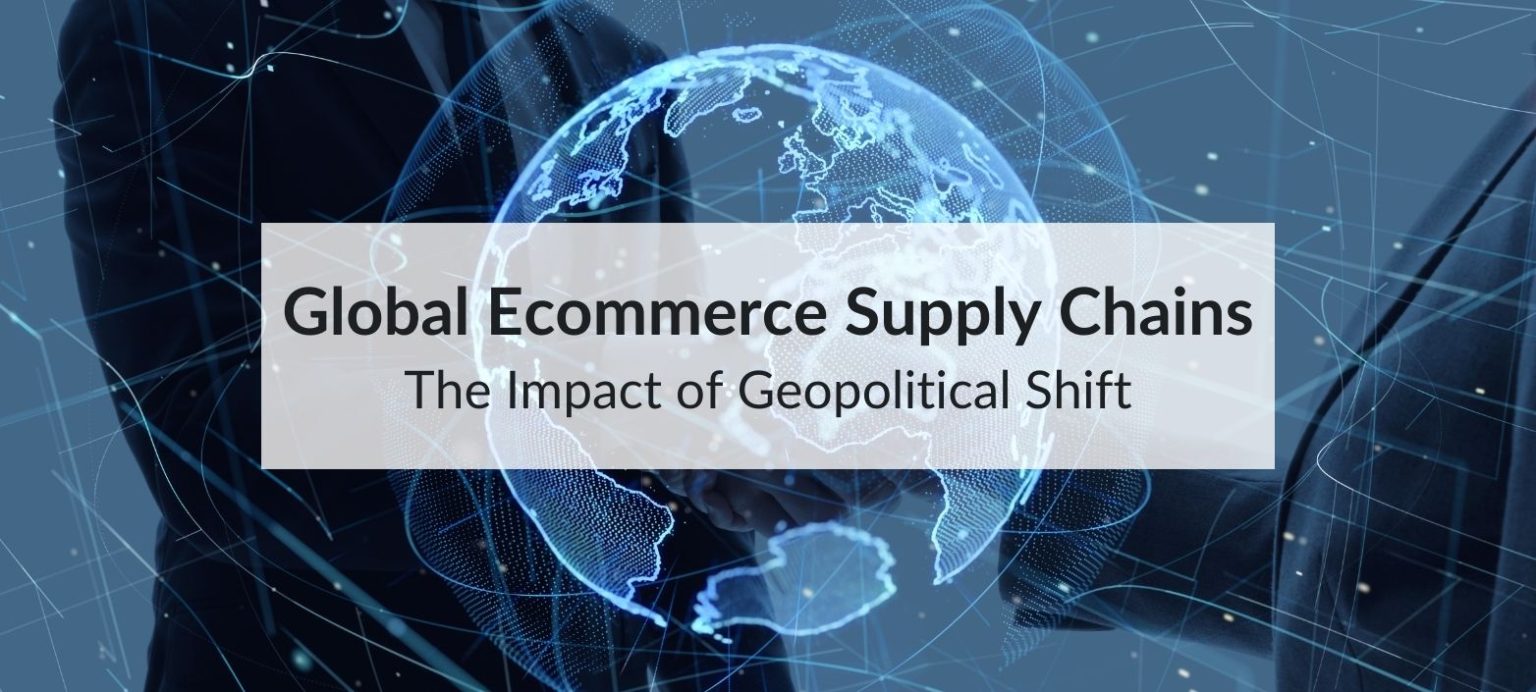Global ecommerce has experienced exponential growth over the past decade, driven by advancements in technology, consumer behavior shifts, and expansive international trade networks. However, recent geopolitical shifts—such as trade wars, political realignments, and regional economic agreements—are significantly reshaping global ecommerce supply chains. These changes are influencing product availability, shipping times, and overall costs, compelling businesses to reassess their sourcing and logistics strategies.
How Geopolitical Shifts Are Reshaping Global Ecommerce
1. The US-China Trade War and Its Ripple Effects
One of the most notable geopolitical events impacting global ecommerce was the US-China trade war, which began in 2018. The imposition of tariffs on billions of dollars’ worth of goods disrupted supply chains, increased costs, and forced many ecommerce giants to seek alternative sourcing strategies. According to the Peterson Institute for International Economics, US imports from China dropped by 25% between 2018 and 2020 due to these tariffs.
Impact:
- Higher Product Costs: Increased tariffs led to higher production costs, which were often passed on to consumers.
- Supply Chain Diversification: Companies began sourcing products from Vietnam, India, and Mexico to mitigate risks.
2. Friendshoring: The New Supply Chain Strategy
Friendshoring, the practice of relocating supply chains to geopolitically aligned countries, has gained traction in global ecommerce. This strategy aims to reduce dependence on countries with unstable trade relationships.
- Vietnam: Ecommerce platforms have significantly increased sourcing from Vietnam, thanks to its stable political climate and growing manufacturing sector. Vietnam’s exports to the US grew by 34% from 2019 to 2021.
- Mexico: Proximity to the US and favorable trade agreements, like the USMCA, make Mexico an attractive alternative. In fact, Mexico surpassed China as the top US trading partner in 2023.
3. The Russia-Ukraine Conflict and Energy Dependencies
The Russia-Ukraine conflict has exposed vulnerabilities in global supply chains, particularly in energy and raw materials. This has had indirect effects on global ecommerce, as increased energy costs impact production and shipping expenses.
- Shipping Delays: The Baltic Exchange Dry Index, which tracks shipping costs, saw a sharp rise of over 50% in 2022 due to disruptions in maritime routes.
- Cost Inflation: Higher fuel prices have increased logistics costs, affecting product pricing in global ecommerce.
4. Brexit and Its Implications for Global Ecommerce
Brexit has also reshaped supply chain dynamics, particularly for businesses operating between the UK and the EU. Increased customs checks, tariffs, and regulatory barriers have led to longer shipping times and higher costs.
- Stat: A report from the UK Office for National Statistics revealed that 70% of UK businesses experienced increased supply chain costs post-Brexit.
5. The Trump Administration's New Tariffs and Their Global Impact
In a bold move, the Trump administration has recently imposed 25% additional tariffs on imports from Canada and Mexico and a 10% additional tariff on imports from China, citing national security concerns over illegal immigration and drug trafficking. These measures are expected to have far-reaching implications for global ecommerce.
- Impact on Supply Chains: Higher tariffs will likely disrupt existing trade flows, forcing businesses to reassess their sourcing strategies.
- Increased Costs: The added tariffs are expected to raise product costs, impacting both businesses and consumers.
- Shift in Trade Dynamics: These changes could accelerate the trend of friendshoring, as businesses seek more stable trade partners.
According to Al Jazeera, the US’s top trading partners—Mexico, Canada, and China—account for more than 40% of total goods traded, valued at over $2 trillion. This highlights the potential scale of disruption caused by these new tariffs.
Strategies for Adapting to Geopolitical Shifts

1. Diversifying Supply Chains
Ecommerce businesses are now prioritizing supply chain diversification to mitigate risks. This includes sourcing from multiple countries and building relationships with suppliers in stable regions.
2. Investing in Supply Chain Technology
Technologies like AI-driven demand forecasting and blockchain for supply chain transparency are helping ecommerce companies adapt to geopolitical changes. According to Gartner, 50% of global supply chain leaders plan to invest in AI and advanced analytics by 2025.
3. Flexible Logistics and Inventory Management
Businesses are adopting flexible logistics models, such as nearshoring and regional distribution centers, to reduce dependence on single-source supply chains. This approach helps mitigate risks related to geopolitical disruptions.
Conclusion
Geopolitical shifts are an undeniable force reshaping global ecommerce supply chains. From the US-China trade war to the rise of friendshoring, the impacts of Brexit, and the latest US tariffs, businesses must remain agile and proactive. By diversifying supply chains, investing in technology, and adapting to new trade dynamics, ecommerce companies can not only survive but thrive in this evolving landscape.
For expert support in optimizing your Magento-based ecommerce operations amid global supply chain changes, 5MS offers tailored solutions to help you stay ahead in the dynamic world of global ecommerce.

